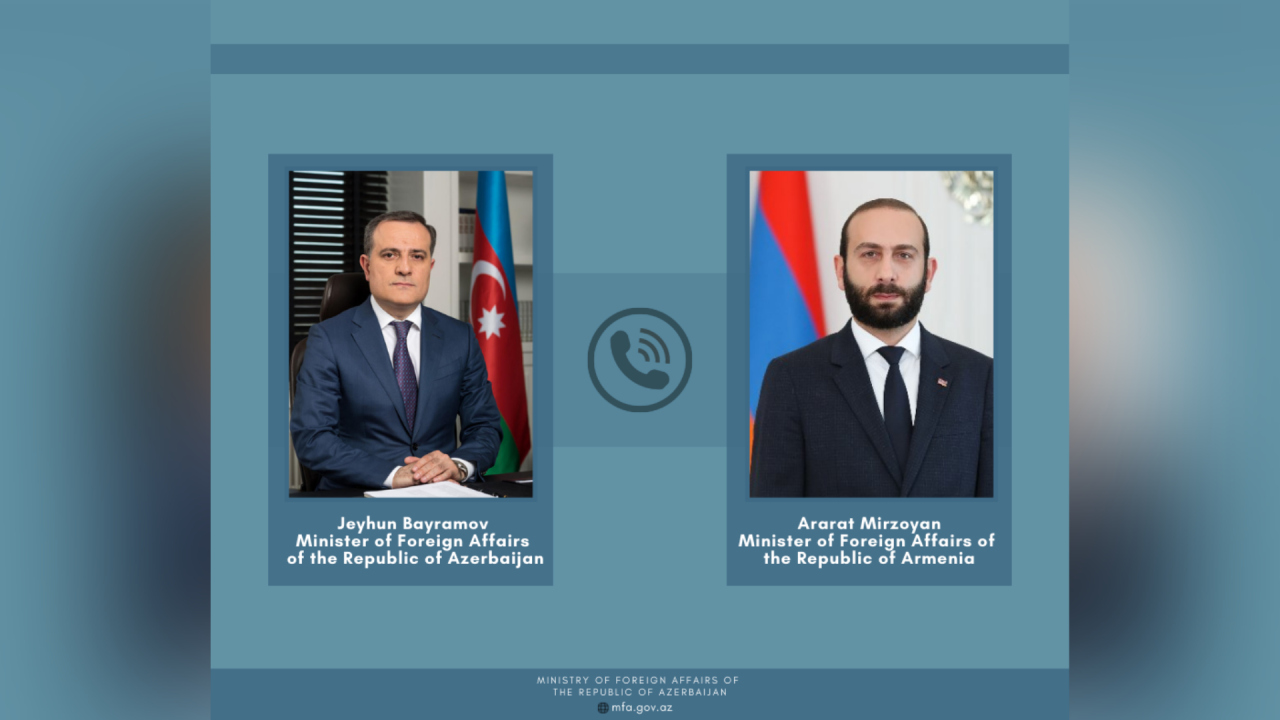Azerbaijan-Armenia: Bilateral format’s tentative inception

By Orkhan Amashov
If March was a month marked with the offer of the victor (Azerbaijan) and implicit acquiescence of the vanquished (Armenia), April has so far transpired to be the month of a new beginning.
For some considerable length of time, Baku and Yerevan have had diametrically opposed views over the Karabakh issue, rendering any viable exchange on a bilateral basis unthinkable. Following the Brussels convocation that took place on April 6, this seems to have changed.
On April 11, the Azerbaijani and Armenian foreign ministers had a telephone conversation, widely perceived as a qualitatively positive development, as it has been the first direct contact, not mediated by the OSCE, EU or Russia, in many years.
In Brussels, the parties agreed to instruct their respective foreign ministries to start work on a deal, and the recent exchange between Azerbaijani Foreign Minister Jeyhun Bayramov and his Armenian counterpart Ararat Mirzoyan wherein, as far as one can tell on the basis of the official information, the discussed issues related to the preparation of a new comprehensive treaty, the creation of a joint border commission and humanitarian situation, is the very first step in this direction.
From two trilateral platforms to one bilateral format
Over the past three decades, a bilateral format has been an utter impossibility and a vital missing element impeding progression towards developing a common ground upon which a settlement could have been built, for Baku and Yerevan have been contesting their case within two separate dimensions, governed by different verities.
Before the 2020 campaign, the OSCE Minsk Group had been the only recognised format within which the negotiations were taking place. The war and its consequences rendered the institute of the co-chairmanship obsolete and irrelevant, and thereafter, it was effectively, albeit not formally, replaced by two separate, not necessarily intertwined, but indubitably interrelated, trilateral platforms.
Both the Moscow and Brussels formats are contingent upon the Kremlin-brokered ceasefire deal signed in November 2020, and all the agreements, to which the negotiations under their auspices have by now given rise, are harmoniously interlinked.
Another principal commonality uniting the two platforms is that they are both, at least on a purely formal level, designed to ensure that the parties move towards a framework which would enable them to talk to each other directly. In this vein, the agreement reached in Brussels to the effect of launching work on developing a peace agreement and the subsequent telephone chat between the two foreign ministers could be viewed as the logical continuation of the negotiations that received their inception by virtue of the ceasefire agreement.
Subsequent to the Sochi meeting, an agreement was reached as to the creation of a bilateral commission on delimitation and demarcation of the state border, with Russian consultation. The same was articulated after the latest Brussels convocation, this time with a deadline set as “late April” and without involving a third-party role.
In Azerbaijan, the prospects for bilateral talks have been received with enthusiasm, although the same cannot be said about the mood in Yerevan. On a governmental level, Armenia seems to have committed itself towards conducting future negotiations on a face-to-face basis, yet the critics of Armenian Prime Minister Nikol Pashinyan feel such a format will expose the country’s weaknesses, and given that the bargaining chips clearly favour Baku, it would be more judicious to rely on third parties.
For instance, Armenian analyst Tigran Grigoryan believes that the Brussels-negotiated format serves nothing but the victor’s interests, and bilateral talks can never yield results favouring Yerevan. This gloomy line, reiterated by many others, seems to be indicative of the want of self-reliance that has long characterised Armenian national aspirations.
Brussels-Moscow rivalry
One essential aspect which has not escaped the attention of some observers is that whenever the EU becomes more active over the Karabakh issue, Russia also takes certain steps to reinforce its involvement, due to its desire to reassert regional hegemony. There is also a question of possible competition between Brussels and Moscow over being a chief power-broker in developing post-conflict normalisation.
Given the historic rivalry between the two centres and the current catastrophically deteriorated relations in the light of the Ukrainian crisis, one cannot entirely exclude the presumption that Kremlin may feel slightly perturbed by the EU’s seemingly increased clout over the matter.
Yet one aspect remains unchanged. Since both formats emerged from the legal consequences emanating from the November 10 ceasefire deal, whatever could be achieved in Brussels should not be in contravention with the logic of Moscow-mediated negotiations.
So, it could be assumed that instead of rendering the nascent bilateral format ineffectual through its leverage on Yerevan, the Kremlin may step up and become more influential by means of ensuring firm foundations for direct talks.
However positive the atmosphere engendered by the latest Brussels meeting and the Bayramov-Mirzoyan direct telephone chat may be, at the present juncture, one should not fall into the trap of making excessively rosy predictions.
It will take some time before a genuinely durable and sufficiently self-contained bilateral format emerges from the presently functioning trilateral platforms. En-route to a peace deal, irrespective of the degree of mutual understanding that could be achieved, some facilitatory external participation may still not go amiss.
---
Follow us on Twitter @AzerNewsAz
Here we are to serve you with news right now. It does not cost much, but worth your attention.
Choose to support open, independent, quality journalism and subscribe on a monthly basis.
By subscribing to our online newspaper, you can have full digital access to all news, analysis, and much more.
You can also follow AzerNEWS on Twitter @AzerNewsAz or Facebook @AzerNewsNewspaper
Thank you!
